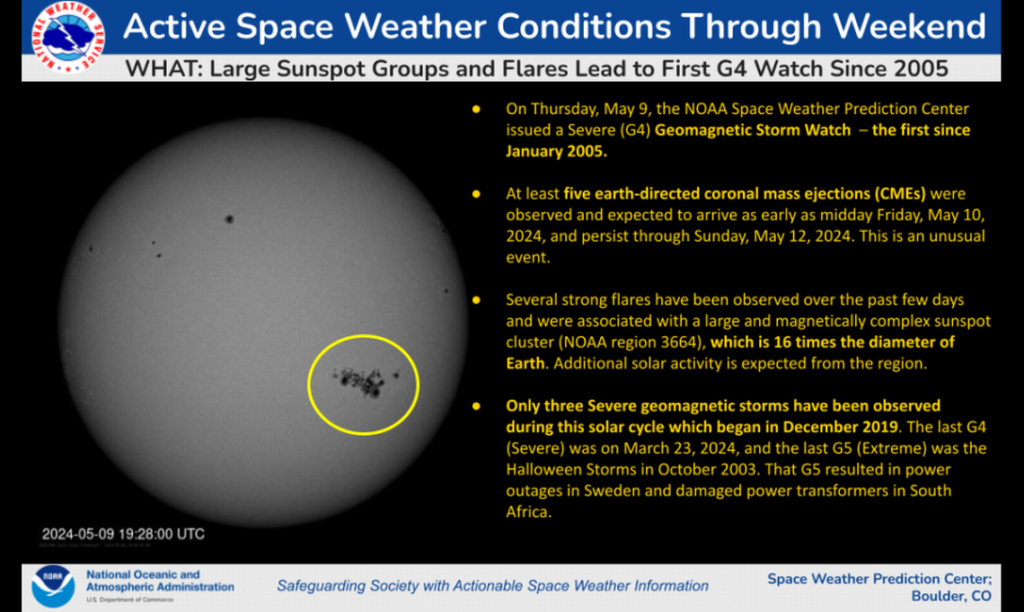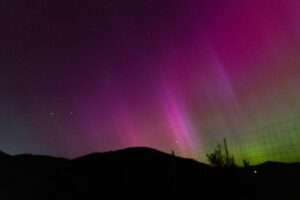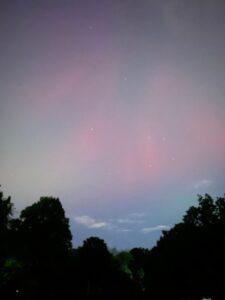Unusually strong solar storms headed toward Earth could disrupt communications systems and other infrastructure this weekend, while also creating a heavenly show that may be visible all the way to North Carolina.
In other words, your GPS might not work, so find a place where you can see the open sky, and look up.
NOAA’s Space Weather Prediction Center Thursday issued its first severe geomagnetic storm watch since 2005. It’s in effect from late Friday through Sunday.
NOAA says at least five coronal mass ejections have been observed since Wednesday, meaning the sun’s corona expelled large amounts of plasma and magnetic field, which the agency refers to as a magnetic clouds that travel through space and can cause solar storms, NOAA says.
The agency says a solar or geomagnetic storm is disturbance of the Earth’s magnetosphere, the area around the planet that’s controlled by its magnetic field.
Are we in danger?
The most likely impacts from a severe solar storm are to systems that rely on radio frequencies. NASA says that during geomagnetic storms some radio frequencies are absorbed and others are reflected, resulting in fluctuating or disrupted signals.
NOAA says solar storms can affect the weather in space and can cause glitches and fluctuations in GPS systems, electric power transmission, high-frequency radio transmission and satellite communications.
In some places, the agency says, GPS could be degraded or inoperable for hours.
NOAA says it will provide real-time information on outages on its website, though it’s also possible the internet will be unavailable at times.
What is an aurora from a solar storm?
As the charged particles ejected from the sun hit the Earth’s magnetic field, they create auroras, also called northern lights. They’re not visible in the daytime but can be spectacular at night.
This event is likely to create auroras visible in many areas of the U.S., including North Carolina. Cloudless skies make for the best viewing.
The Space Weather Prediction Center issues aurora forecasts for the northern and southern hemispheres, which project out up to 90 minutes at a time. Auroras are based on current geomagnetic storm conditions.
An aurora doesn’t need to be directly overhead, and can be seen from more than 600 miles away if it’s bright and conditions are right.
The National Weather Service forecast for Raleigh, Durham and Chapel Hill shows clearing skies Friday night.



